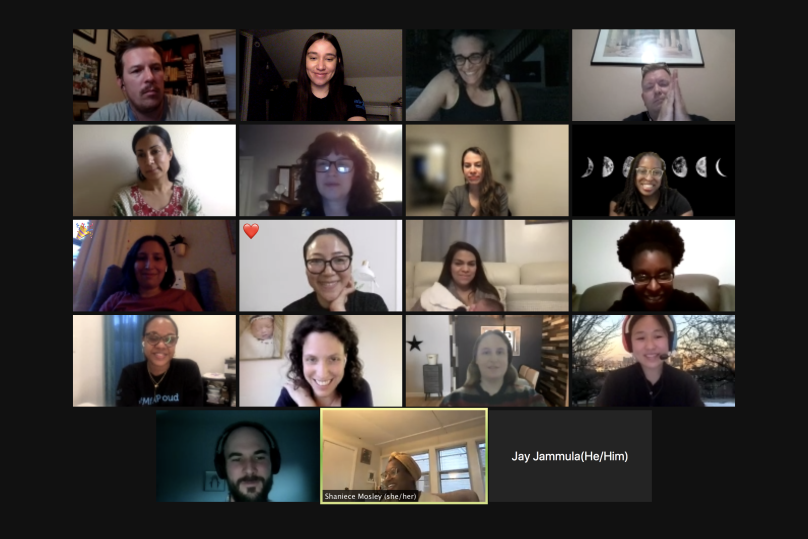
In the fall of 2019, MƒA established the Equity Advisory Committee (EAC), a group of 13 MƒA teachers who advise and collaborate with MƒA leadership in our efforts to prioritize and build on diversity within the MƒA community. The EAC helps to refine a shared definition for MƒA and provide feedback on action plans designed to foster an inclusive and empowering learning environment for all MƒA teachers.
“Looking forward, the EAC will continue to play a central role in our efforts to create equitable and inclusive spaces for all teachers and students, at MƒA and beyond."
- Michael Driskill, MƒA Chief Operating Officer
Over the past year, MƒA teachers worked with staff to develop and accomplish several SMART (specific, measurable, attainable, realistic, time-bound) goals. The group began their work by expanding on existing committee norms aimed to build a safe space for discussion and collaboration, including:
- Be here in body and spirit
- Prioritize impact over intent
- Speak your truth
- Listen to understand, not to find segues
- What’s learned here leaves here, what’s shared here stays here

To broaden their scope and impact, the group formed four subcommittees: 1) Norms, Practices, and Policies; 2) Leadership, Courses, and Professional Development; 3) Data, Measurement, and Outcomes; and 4) Recruitment, Initiatives, and Screening. MƒA teachers selected which team they wanted to be a part of based on their own interests and areas of expertise. At the end of each meeting, the EAC regrouped to debrief and share out on the work they accomplished within their subcommittees.
“Together we brainstormed SMART goals and then narrowed them down to a couple we felt most passionate about,” shared Uzma Shah, MƒA’s program officer for professional development who leads the Leadership, Courses, and Professional Development EAC subcommittee. “For example, one group worked to develop ideas on how to diversify MƒA’s teacher facilitators to include more BIPOC teachers and teachers from high poverty schools. This has been an ongoing MƒA goal for several years and the EAC was able to offer fresh perspectives.”
The EAC has also played a significant role in supporting teachers through the recent challenges our city has faced following the COVID-19 pandemic, civil unrest, and the fight to end the nation’s long-standing racial inequities. This past year, the committee worked to create new equitable opportunities for MƒA teachers and help our community find a way forward by offering ideas on how to support BIPOC teachers during their application process, throughout their time in the fellowship, and in their classrooms.
“The change in our work from last year to this year was meaningful because it shifted perspective from looking within the MƒA community to considering the impact MƒA teachers have on our students,” shared Arah Lewis, who was part of the EAC Data subcommittee. That group spent time designing survey questions to identify the different school environments MƒA teachers are in, the extent to which they work towards an equitable classroom, and how they are leveraging their MƒA experience toward achieving equity in the classroom.

“MƒA seeks to ensure that dedicated and talented teachers stay in the classroom and engage in high quality professional learning opportunities to improve learning outcomes for all students,” said Arah. “The only way to reach all students is to ensure teachers are considering equity in their instruction. The only way to ensure the most qualified applicants are being awarded fellowships is to ensure equitable access to the application process. In short, dedication to equity is dedication to high quality education.”
“Looking forward, the EAC will continue to play a central role in our efforts to create equitable and inclusive spaces for all teachers and students, at MƒA and beyond,” shared Michael Driskill, MƒA’s chief operating officer. “We’re excited to see how next year’s committee will build on this year’s considerable success.”